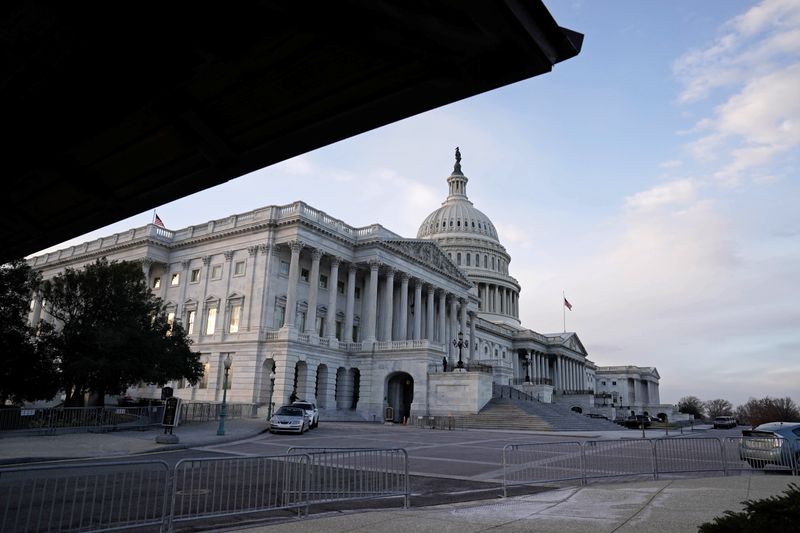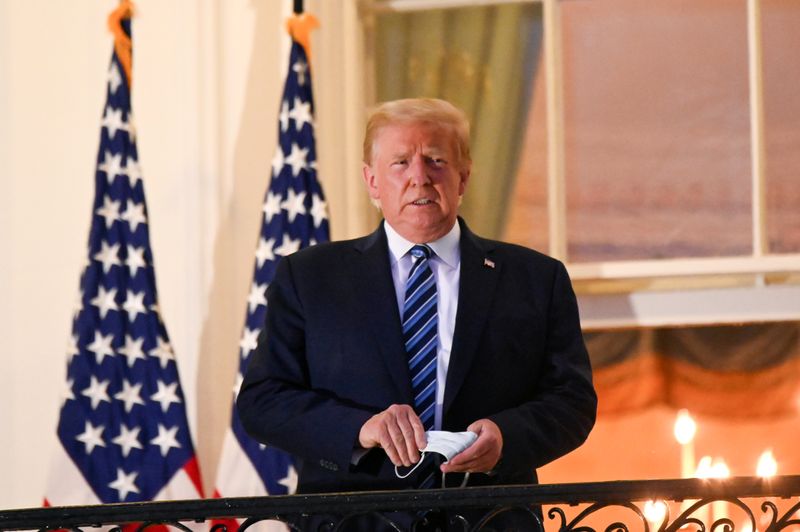(Reuters) - U.S. President Donald Trump's threat not to sign a $2.3 trillion spending package approved by Congress has already shuttered an emergency unemployment aid program and threatens a partial federal government shutdown at midnight on Monday.
The bill provides $892 billion in coronavirus relief and $1.4 trillion to keep regular government operations running through the fiscal year.
Without Trump's signature, Congress would need to pass a stopgap funding bill that he is willing to sign to keep federal agencies fully operating.
The Trump administration has not said what it will do if the government runs out of money, but previous lapses have led to tens of thousands of non-essential workers being put on leave and others, including those dealing with public safety, forced to work without pay.
Here's what would likely happen if the White House and Congress cannot agree on a spending plan:
PANDEMIC ECONOMIC ASSISTANCE: The legislation would provide $600 stimulus checks to millions of struggling Americans. Trump, in one of his chief criticisms of the bill, has said the payouts are too small and has demanded the checks be increased to $2000.
Unemployment benefits being paid out to about 14 million Americans through pandemic programs lapsed on Saturday, but could be restarted if Trump signs the bill. The bill would keep the benefits going through mid-March.
The spending package also extends a moratorium on evictions that expires on Dec. 31, refreshes support for small business payrolls, provides funding to help schools re-open and aid for the transport industry and vaccine distribution.
All of the relief programs are at risk unless an agreement can be reached.
VACCINE DISTRIBUTION: The federal government has already purchased 400 million COVID-19 vaccine doses, or enough for 200 million people, from Moderna (NASDAQ:MRNA) and Pfizer (NYSE:PFE) but needs additional funds to purchase more doses. It also signed contracts with other companies for vaccines that have yet to be authorized. Private companies, including McKesson (NYSE:MCK), UPS and FedEx (NYSE:FDX), are distributing the doses but have been relying on staff in the Department of Defense and the Department of Health and Human Services for support.
States have received $340 million from the U.S. government to help offset costs they have borne from the vaccine rollout but say they face a shortfall of around $8 billion. A shutdown would halt plans by Congress to distribute funding to make up for that shortfall.
HEALTHCARE: Previous shutdowns have led to widespread furloughs for workers at the Centers for Disease Control and Prevention (CDC), one of the agencies leading the response to the coronavirus pandemic. A CDC program to track flu outbreaks was halted during a 2013 shutdown; in 2018, the government kept the program running during another shutdown, saying "immediate response to urgent disease outbreaks" would continue.
MILITARY: The Defense Department continued operating through the last shutdown, which stretched 35 days through late 2018 and early 2019. During that period, the United States was unable to send paychecks to service members and civilian employees. Active-duty military personnel were considered essential workers; some civilian employees and contractors were furloughed.
LAW ENFORCEMENT: The FBI and other law enforcement agencies continued working during previous shutdowns. The FBI Agents Association said after the last shutdown that funding lapses made it harder to pursue cases, in part because they were unable to pay informants. Federal courts largely remained open through the last shutdown because they had enough money available to sustain them through the shutdown.
NATIONAL PARKS AND MONUMENTS: National parks and monuments largely remained open during the last shutdown, though some places, such as Philadelphia's Independence Hall, closed. Other parks remained open with limited staffing, leading to complaints about overflowing trash, uncleaned bathrooms and illegal campsites as visitors fended for themselves.
FINANCIAL OVERSIGHT: Market regulators were forced to furlough staff during the last shutdown. The Securities and Exchange Commission kept sufficient staff in place to monitor markets and "respond to emergency situations." It continued to accept corporate filings.
MAIL DELIVERY: Deliveries continued as usual during previous shutdowns because the U.S. Postal Service receives no tax dollars for day-to-day operations.
TRAVEL: The Transportation Security Administration workers who screen airline passengers continued working during the last shutdown. So did air traffic controllers, who the government considered to be essential employees.

The 2018-2019 shutdown came to an end when absences by air traffic controllers raised the prospect of many flights into and out of New York being canceled, provoking a compromise between Trump and Congress.
